DNC Blocks Iowa And Nevada From Holding ‘Virtual’ Caucuses
The Democratic National Committee is moving to block efforts by the state parties in Iowa and Nevada to open up the caucus process to more participants, citing security issues.
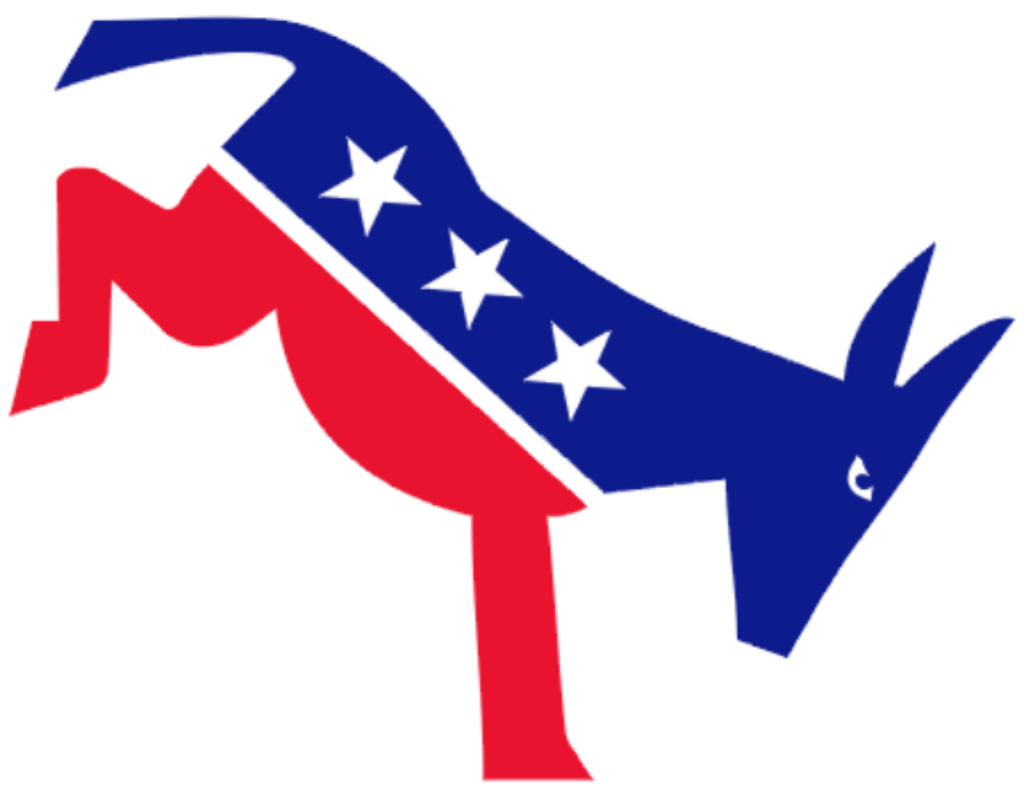
The Democratic National Committee has put a big roadblock in the path of caucus states such as Iowa and Nevada to allow people unable to attend the caucuses those states hold via so-called ‘virtual caucuses’ that would allow people to have a say in the outcome via an online voting mechanism:
Democrats in Iowa and Nevada were steaming Friday after the Democratic National Committee recommended scuttling proposals intended to make caucuses in both states more accessible and increase turnout in 2020.
While leaders with both the Nevada and Iowa state parties said they were confident the DNC decision would not disrupt the timing of their 2020 presidential caucuses, five officials close to caucus preparations in both states privately expressed dismay over the late decision to scrap the plans for so-called “virtual caucuses,” which had been in the works — with the DNC’s input — since the early spring.
proposed in Iowa and Nevada was supposed to fulfill a new DNC requirement to improve accessibility at the 2020 caucuses. It came after years of complaints from caucus state voters who say they want to vote but, because of work or physical conflicts, have been unable to attend the long and involved events, which often drag on for hours. The virtual proposal was aimed at bringing in those voters, as Democrats hoped to expand turnout in 2020 and pour the maximum amount of grassroots energy into picking a nominee to take on President Donald Trump.
But two sources close to the DNC discussions said that as the virtual proposals were under consideration, DNC security experts managed to hack into a conference call involving the committee and both Nevada and Iowa parties, raising new questions about security.
Officials in Iowa, however, say that system was not comparable to the technology under consideration for the caucuses. Democratic leaders in both states expressed frustration that they went to great lengths to craft plans and release them publicly early in the year.
“What’s surprising is that the DNC insisted on expanding access to the caucus, and then when the state party comes up with a plan for expanding access, they use leaks and innuendo to tube the process,” said Jeff Link, an Iowa-based Democratic consultant who has long helped run the Iowa caucuses.
Link accused the DNC of leaking a narrative last week out of a closed committee in San Francisco. “This whole notion that their system was hacked and it was a security risk — there was no system in place yet,” he said.
One Nevada Democrat, who asked not to be named, noted that the DNC had advance viewing of the state’s plan before it was made public in March.
“To say this is unbelievable would be an understatement,” the person said.
A DNC spokesperson did not respond to a request for comment.
“Unfortunately, the DNC has advised we not go forward with this process due to threats against our Democratic infrastructure and Republican inaction to prevent future attacks in the upcoming election cycle,” Nevada Democratic Party Chairman William McCurdy II said in a statement.
More from The Washington Post:
Democratic officials moved Friday to block plans to allow caucus-goers to vote by phone in Iowa and Nevada next year because of concerns the technology could be hacked, casting doubt on the party’s ability to expand participation in some early-voting states.
A memo from Democratic National Committee Chair Tom Perez and the co-chairs of the Rules and Bylaws Committee recommended against the addition of a virtual caucus option. Internal security and technology analysts, working with outside experts, found there was no teleconference system that met security standards “given the scale needed for the Iowa and Nevada caucuses and the current cybersecurity climate,” the advisory stated.
The recommendation sets up a meeting of the Rules and Bylaws Committee, which has ultimate say over the plans but is unlikely to deviate from the guidance of its leadership.
A vote to scrap plans for a virtual caucus would illustrate the difficulty involved in engaging more voters in the nominating contest, which had been a major aim of the Democratic Party. It would also reflect the gravity of concerns about interference in the electoral process.
“There’s too great a potential for hacking and abuse,” said Frank Leone, a member of the Rules and Bylaws Committee from Virginia. There was also unease, he said, that the technology would prove too cumbersome for voters to understand.
Rules the DNC approved last year pressed caucus states to convert to a primary system — which at least nine states have done — or else devise a way for voters to participate without attending an hours-long meeting, sometimes in biting temperatures.
Iowa and Nevada responded to the new DNC requirements with plans for a call-in option. In Iowa, voters would have been able to register for a unique PIN and then call in to record their preference during one of six virtual sessions, the final opportunity falling on the same day as the caucus itself.
The virtual caucus in Nevada would have occurred across two days leading up to the in-person gatherings.
The Rules and Bylaws Committee received a closed-door briefing from security experts last week in San Francisco and heard major concerns about hackers’ abilities to compromise the technology. The DNC has also heard from presidential campaigns about tele-caucus security concerns, particularly related to warnings that nation-state actors, such as Russia, are looking for ways to interfere in the 2020 election.
Obviously, the DNC’s decision places Iowa and Nevada in something of a bind with only a short period of time to go before they’ll have to be ready for the start of the 2020 election process. As things stand, there are 157 days left until the Iowa caucuses and 162 days until the Nevada caucuses. While this is a long time in terms of campaigning, it’s a fairly short amount of time when it comes to planning for how the caucuses are going to be run. The DNC’s apparent decision to block the ‘virtual caucus’ plans that both state parties have come up with leave them with very little, and perhaps not enough, time to develop alternatives that would be acceptable to the DNC and its security team.
The virtual caucus idea was, despite the objections of the DNC a promising one that would have allowed people who could not participate on Caucus Night to still take part in the process. Under the plan that the Iowa Democratic Party released in February, registered Democratic voters will be able to sign up to participate in the ‘virtual caucus’ via either phone or smart device. On these devices, they would be able to rank up to five choices for the party nominee. There would be six caucuses beginning roughly a week before the actual caucuses, apparently, one each day, and participants in a virtual caucus would not be eligible to participate in an actual caucus. The results of these caucuses would be maintained by the Iowa Democratic Party and would be weighted differently than the in-person caucus, accounting for about ten percent of the total with delegates being awarded based on the Congressional District of the participants. This is the first time Iowans will be able to participate in a caucus without actually attending and it will no doubt be closely watched to see how well it works and how it could be applied to other states in the future. The plan that the Nevada Democratic Party proposed was similar to Iowa’s and would have also allowed people unable to show up on the day of the caucus to participate in a process they otherwise would have been locked out of.
The ideal solution, of course, would be to scrap the entire idea of caucuses. As I’ve noted before — see here and here especially — caucuses are an inherently flawed and arguably anti-democratic way to select delegates. This is due to the fact that such a system makes it difficult if not impossible for people who are unable to get to a caucus location on a given weeknight to participate in the candidate selection process. It also makes it easier for supporters of otherwise marginal candidates to take over the delegate selection process in a way that they would likely be unable to do in a traditional primary.
As noted above, in response to the DNC’s call to expand access to the delegate selection process, several state parties in the past responded to that plan by switching to a primary. The most recent state party to do that is in Kansas, which not only ended its traditional caucus in favor of a primary but also announced plans to use Ranked Choice Voting in that primary.
There probably isn’t enough time for Iowa and Nevada to convert to a primary at this point, although I suppose that’s possible. Additionally, such a move at this late date would set up a conflict between Iowa and New Hampshire, which continues to insist it will do whatever it takes to maintain its first-primary-in-the-nation status. It would also be disruptive to everyone who has been campaigning in Iowa and Nevada on the assumption that those two states will be holding their traditional caucuses. Because of that, the most likely outcome seems to be that the state parties in both states will get waivers from the DNC allowing them to hold their traditional caucuses. Perhaps they’ll still find a way to accommodate people who cannot attend the caucus in person, but that’s not guaranteed. For the long-term, though, the best solution would be to get rid of caucuses entirely.

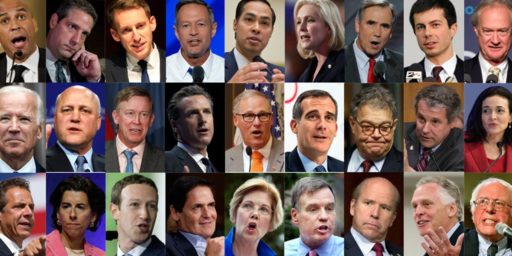
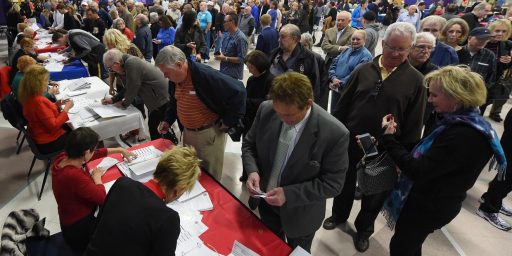
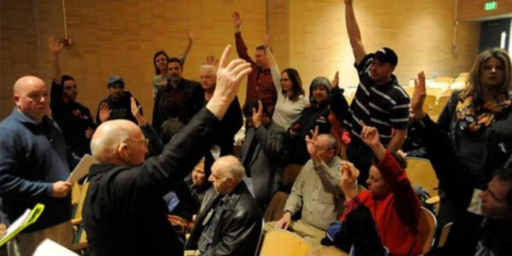

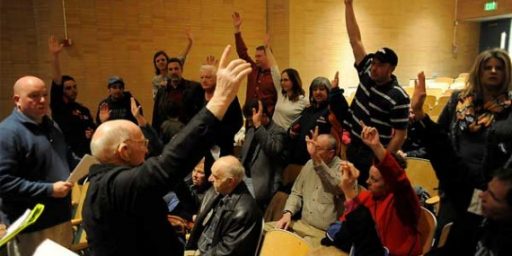
If you’ve ever attended one of Iowa’s Democratic caucuses, you will probably recognize that the method confers an advantage on the candidate with the greatest institutional and organizational (rather than personal) support. As a private organization the Democratic Party can organize its nomination process however it cares to but the effect of retaining the caucus will be to retain that advantage.
+1
Virtual caucuses are inherently hackable and the DNC made the proper decision.
I think the caucus structure — with the emphasis on non-viable candidates supporters having the opportunity to gather together and make one of the non-viable viable, or support their favorite of the viable candidates — is a good thing. Particularly in the early states.
But, that can all be done with ranked choice voting, without having to listen to your neighbor blather in about Pocahontas or Biden’s senility or whatever.
And, it doesn’t have to be for just a few hours on a workday or whatever. How about Caucus Weekend?
Keep the name and goals of the caucus, but utterly redefine it to allow more participation.
If the arguing with the neighbors is beloved, allow residents of a precinct to campaign at caucus sites.
@Gustopher: also, I would suggest calling this proposal a High Participation Caucus, so anyone opposed has to explain why they favor low participation.
Too late for 2020, but it’s never too early to start planning for 2024.
@Dave Schuler:
Yes. Exactly. And that’s a good thing. With twenty plus candidates running this weeds out the ones who, however wonderful they are as a person, can’t get their organization together. A Presidential campaign is the Majors, and the winner is going to bear a tremendous responsibility for the country. It’s great that these people want to be public servants and steer the country in the right direction, but jumping into politics at the presidential level with no national experience and poor organization skills is about equivalent to me deciding I have some really good ideas on how to coach a little soccer and then showing up at DC United front office and then being shocked and outraged when that isn’t enough to land me the job.
The caucuses are a chance to show your ability to organize and motivate people at about the cheapest cost imaginable. Barack Obama figured it out and used it to help prove he and his team could play in the big leagues. Jimmy Carter also comes to mind. Bernie showed he could play in the caucuses and that gave him credibility, but then went on to prove that he couldn’t win anywhere else. (Despite the lies the Bernie Bro tell themselves and everyone who they can corner, more people voted for Hillary, more registered Democrats voted for Hillary, she won more delegates and yes, she won more superdelegates. How do you win superdelegates? You establish an organization, use it to get to know the needs and hot buttons of those superdelegates and put in the work to make sure your people are chosen. As opposed to the Bernie strategy: call them corrupt and belittle them and make it clear you are too good to actually join a party they have been members of their whole life.)
@MarkedMan:
How does a caucus show organizational ability that a more inclusive primary doesn’t?
@Sleeping Dog: I don’t think it does. But organizing for a primary is a much costlier task. A caucus allows lower tier candidates to show their potential at a price they can reach.
That said, Bernie has pretty much killed off the caucus. Small states tend to have caucuses because they are cheaper and are much easier to organize and count the votes. But a side effect of this is that there can’t be a recount since it literally is just a bunch of caucus participants standing in groups. Once they are tallied they walk away. In 2016 Bernie and his Bros became convinced that Hillary had cheated in Iowa (she didn’t, her people just understood the process better) and demanded a recount. When he discovered this wasn’t possible he became enraged and has expended much of his political capital on forcing the DNC to mandate caucus states have the ability to recount. But this requires paper trails and counting mechanisms and so forth so almost all of the caucus states decided to just have a primary instead. (Iowa excepted, as their first in the nation status is dependent on they having a primary)